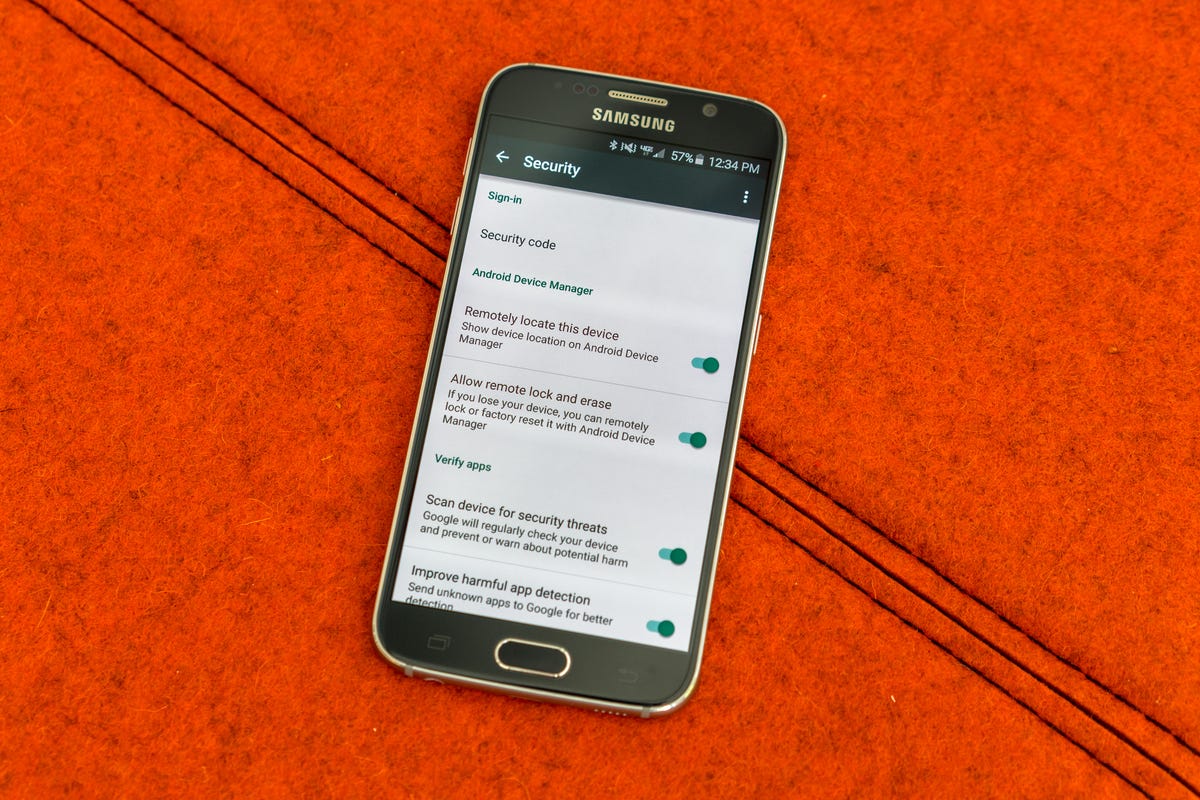
Security is paramount
Worried about the government hacking into your phone? It's a scary possibility that's getting attention because of the FBI's demands that Apple help it unlock a phone used by a gunman during a shooting last year.
While there's a chance that the FBI will get its way, which would allow the agency to get into locked phones in the future, there are bigger security threats you should be worried about right now.
Here are seven crucial steps you should take with your phone to make sure it -- and your personal information -- is safe from thieves, malware and other hazards.
Letting your phone get stolen
Sounds obvious, right? And yet it happens all the time -- 2.1 million cell phones were reported stolen in 2014. If a thief takes your phone, they can learn a lot about you, including where you live, where you work, who your bank is, your credit card information, saved passwords and much more.
Don't bury your nose in your phone while you're walking on the street, especially in large cities. Stay vigilant in touristy areas, which are usually hotbeds for pickpocketing. Keep your phone out of reach of criminals by keeping it your bag or front pocket. For more tips, check out CNET's guide on keeping your phone safe.
Leaving your phone unlocked
If you don't already have a screen lock, set it up now. It's the most basic line of defense to stop thieves from riffling through your phone if it ends up in their hands.
On Android, you can use a password, PIN or swipe lock. PINs and passwords, especially ones longer than four characters, are harder to crack, so they're a bit safer. Some Android phones also have fingerprint readers to unlock the screen, which is is a safe and convenient option.
With iPhones, you can use a PIN. For the iPhone 5S and newer there's Touch ID (left), a simple yet effective fingerprint lock. Pick whichever method works best for you and use it.

Not tracking your phone if it gets lost
Should your phone ever go missing, you can track its location and remotely lock or erase it. Here are a few steps to take to make sure you're set up to do this.
On Android, go into the Google Settings app (separate from the regular Settings app) and tap Security. Under Android Device Manager, make sure both "Remotely locate this device" and Allow remote lock and erase" are turned on. With those two settings, you can track your phone on a map from your computer and erase your phone should it be stolen or misplaced.
For iPhones and other iOS-powered gadgets, Apple has Find My iPhone, a feature that is turned on by default and lets you find your iOS device on a map, lock it, and remotely wipe it. Log in into the Find iPhone app with your iCloud account to check that it's set up correctly.
Not using protection
Antivirus protection, that is. Android phones (and to a lesser extent, iPhones) are susceptible to malware, but an app like Lookout, Avast or TrustGo scans your phone to find these dangerous programs and helps you remove them.
Though iPhones can get malware, there aren't any antivirus apps you can use. Instead, Apple pushes out security patches when it finds flaws in iOS that would let malware get in.
For more about malware, check out CNET's guide.
Using free Wi-Fi wherever you find it
Free, unsecured Wi-Fi networks generally leave you vulnerable to other people checking out what you're doing online. Even worse, an open Wi-Fi network could be a spoof designed explicitly to steal your information.
Free Wi-Fi at a cafe or airport is generally safe, but make sure you don't access any sensitive information (like your bank's website) while using them. Definitely steer clear of any random open networks you don't recognize -- they aren't worth the risk.
Clicking links in sketchy texts
Phishing is a common tactic criminals use to get you to reveal personal data or infect your phone with malware.
If you get a random text with link from someone you don't know, do not click it. It could be someone trying to get information out of you, or worse, malware that can control your phone and send information back to hackers.
Not updating your phone and apps
A simple way to protect your phone is to keep it up to date. Download operating system updates when they arrive on your phone, and check that your apps are staying current, too.
Hackers like to exploit bugs in outdated apps and software, but companies fix these bugs in updates, so making sure you have the latest version means you're less vulnerable.

